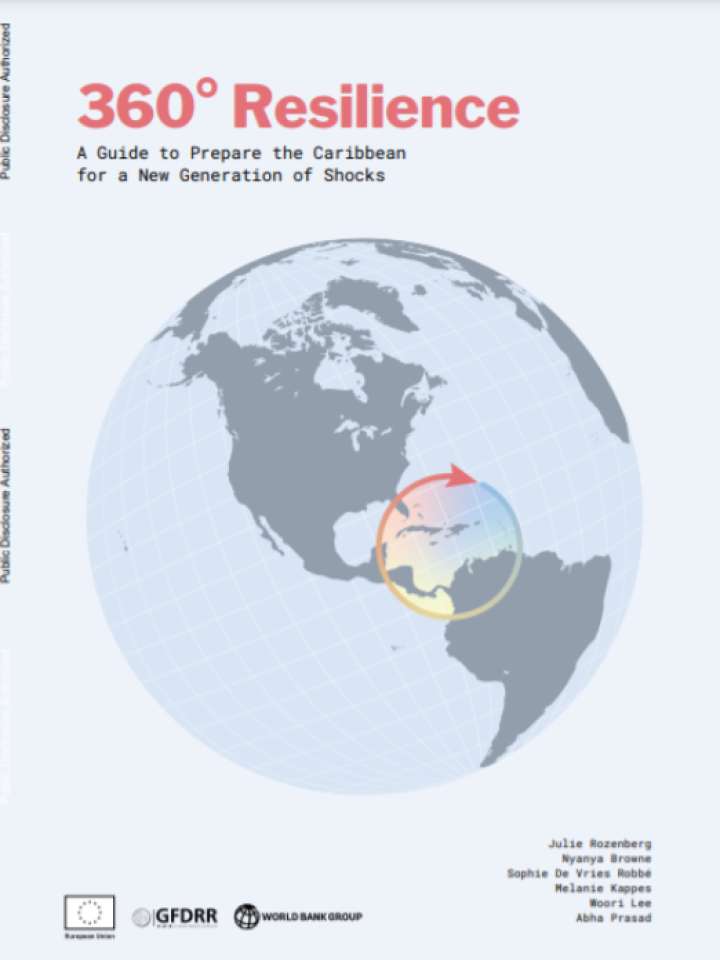360° resilience: A guide to prepare the Caribbean for a new generation of shocks
This report reviews existing assessments of past losses from natural and economic shocks in the Caribbean, looking at impacts on physical capital, private sector activity (especially tourism and agriculture), economic growth, poverty, and well-being. The Caribbean countries, a set of mostly Small Island Developing States (SIDS), have a history of dealing with large shocks. The region is threatened by both economic and natural hazards. Nations have specialized in tourism and commodity exports, disproportionally exposing them to global economic cycles through changes in tourism demand and commodity prices. They are also located in a region that is highly exposed to a range of natural hazards, from volcanic eruptions to earthquakes and hurricanes, which damage their infrastructure stock, reduce tourism demand, and destroy agricultural production. Hazards have often caused severe damage to economies and livelihoods in the region.
The report presents two key findings, firstly that Caribbean countries have achieved resilience levels that have allowed them to support economic development despite large recurring damages and losses from shocks. But this relies to a large extent on informal mechanisms that neither systematically protect the poor and most vulnerable groups nor prevent the loss of human capital. Secondly, the concerned countries are not prepared for the new challenges posed by climate change, compounded by uncertainty on future tourism markets. At the same time, the lack of fiscal space in some countries reduces future coping capacity. Caribbean countries face difficult trade-offs for food security. The report recommends that the concerned states increase government efficiency, empower households and the private sector, and reduce future physical risk.
Explore further
